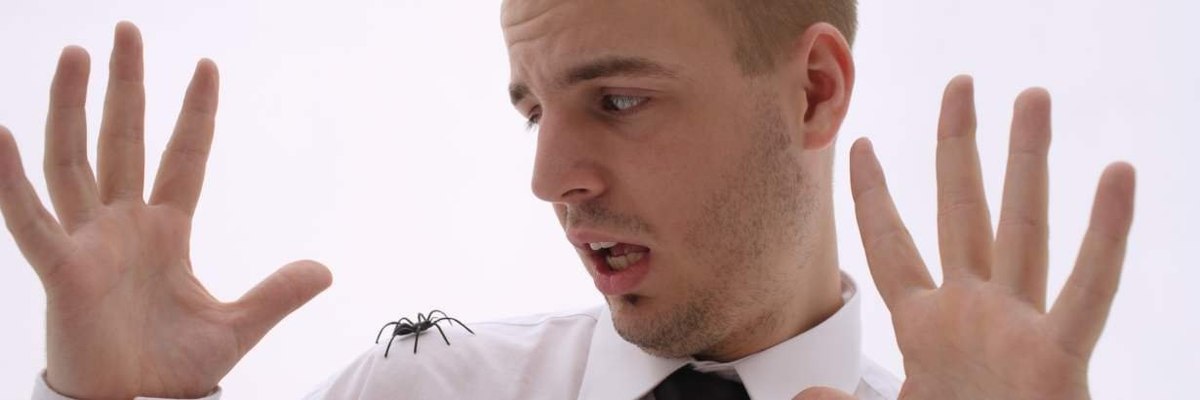Almost a quarter admit to not having a head for heights
According to the Cambridge Dictionary, a phobia is “an extreme fear or dislike of a particular thing or situation, especially one that is not reasonable”. The NHS states that severe phobias can cause a person to “organise their life around avoiding the thing that's causing them anxiety.”
Now, a new YouGov RealTime survey has revealed that, of 10 phobias asked about, heights (or acrophobia) is the one that Britons are most likely to suffer from, with 23% saying it affects them.
Five in ten Britons (21%) say they suffer from arachnophobia, more widely known as an extreme or irrational fear of spiders. This phobia is more common among women, with a quarter (26%) saying they suffer from it compared to 16% of men.
Glossophobia, or a fear of public speaking, also features highly, with 15% of Britons admitting to having an overwhelming and debilitating fear of having to stand up and speak in front of people.
What are Britons scared of?
While not going so far as to say they have a phobia, many Britons also admit to being scared of some of the items on our list.
Including the aforementioned 23% who say they have a phobia of heights, half of Britons (52%) say they have some form of fear of being up high, with the further 29% being either “very” or “somewhat” scared of heights.
Overall, half of the British public (49%) also admit to either having a phobia or being scared of speaking in front of people.
And, although the chances of encountering one in the wild in Britain are slim, two in five Britons (42%) say they have some form of fear of snakes.
This expanded fear question reveals further gender differences. More than half of women (57%) say they have some form of fear of public speaking, compared to 39% of men. The same proportion of women also admit to being afraid of heights to some extent, compared to 46% of men.
However, the gender gap is at its largest when it comes to spiders, with half of women (50%) confessing to having either a phobia or being cared of arachnids, compared to 28% of men.
Women are also almost twice as likely as men to say they are either claustrophobic or scared of enclosed spaces. Two in five women (42%) say they have some form of fear of enclosed spaces such as lifts and tunnels compared to 23% of men.
In the majority of cases asked about, fear diminishes with age. This, according to psychologist Kevin Gournay, could be a result of producing less adrenaline as we age, meaning the fears experienced at a younger age are less of an issue later in life.
For instance, half of those aged 18 to 24 (49%) say they either suffer from arachnophobia or are otherwise scared of spiders (49%) compared to 30% of those aged 55 and over.
The youngest age group are three times as likely to say they have either a phobia or are scared of clowns (21%) as the oldest generation (7%). Those aged 18 to 24 are also more than twice as likely to admit to having some form of fear of needles (28%) compared to those aged 55 and over (12%).
Picture: Getty











